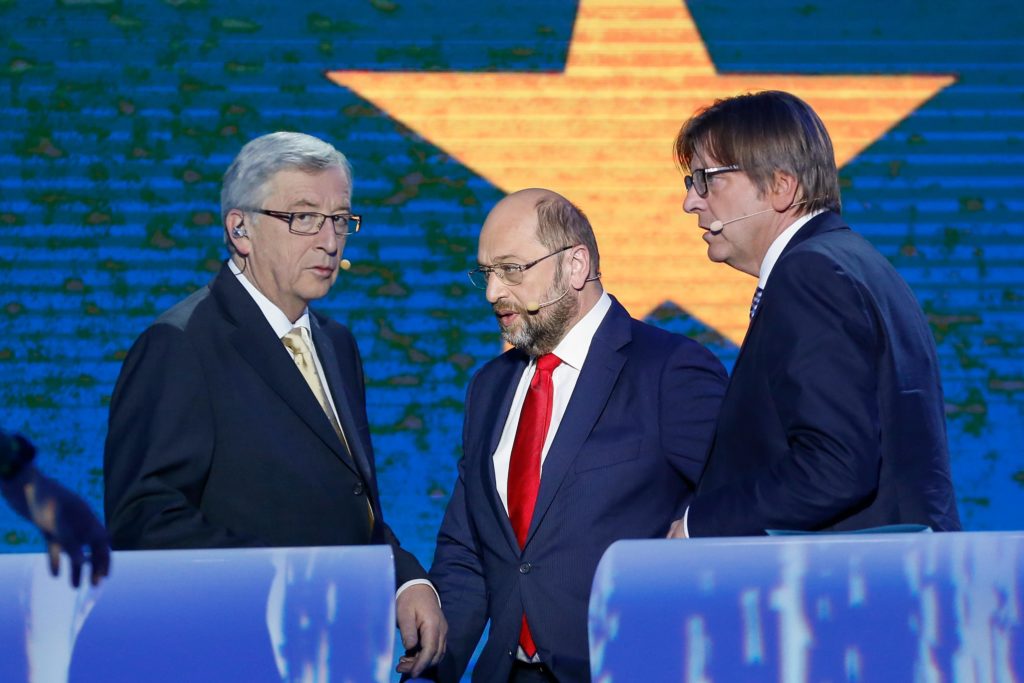Just because
National governments against the Spitzenkandidaten Model

As the 2019 European Parliament elections are coming, a new battlefield has been opened: the Spitzenkandidat system. From one hand, it brings some surprise because the idea of European political parties nominating their lead candidates to be the president of the European Commission, has been so far considered as a great success. But on the other hand, it is business as usual in European politics where personal interests are always put first, and Europe comes second.
I am not claiming that the Spitzenkandidat is the best idea ever and it will definitely save Europe from falling apart. But it is indeed an attempt to tackle the problems of democratic deficit and declining voters’ turnout. Endless number of papers and conferences can be written and organized around these issues, but they don’t favour action. In 2014 something was at least happening, even if it was too little and too late. But there were new slogans, TV debates and media coverage of the issue. And at the end of the day, Jean-Claude Juncker, the EPP’s top candidate, was elected to be the head of the Commission.
I find it a bit ridiculous that the polls are trying to measure the impact of the Spitzenkandidat system on voters’ behaviour. Only 5 percent of voters made a decision based on the lead candidate. And, so what? If we really go into this debate, we can easily get to Winston Churchill’s evergreen quote “The best argument against democracy is a five-minute conversation with an average voter.” Yes, my grandma doesn’t have any clue what the European Parliament does and who Juncker is. So, shall we strip her from her voting rights? Or shall we close down the whole Parliament because the majority of the European voters can only guess what they do? Definitely no. We need to raise their awareness. And the Spitzenkandidat system is a very good mean to do so, if we don’t expect miracles from it. Just a tiny swift, like my grandma watching a bit of the lead candidates’ TV debate.
In other words, as Juncker said very well, the process aimed „not to personalise, but to visualise one of the issues of the election campaign, which was to know who would be appointed President of the Commission and how.” But despite all of my appreciation for these thoughts, he isn’t an exception from the rule either when it’s about using Europe as a tool to maximize his interests.
In the recently leaked paper “Building on the Spitzenkandidaten Model”, the Commission’s think tank, the European Political Strategy Centre managed somehow to seize the opportunity to praise Juncker’s legacy on issues that are not directly related to the topic. I never denied how useful it can be for our future career to adorn our boss. But it was a bit too much. Just like Juncker repeated the proposal to merge the presidencies of the Commission and the European Council, which can only be interpreted as another tactical move in his old turf war with Donald Tusk.
But these small battles are fine. The real problems start when we leave the sacred borders of the Eurobubble. Poland, Slovakia, the Czech Republic, Lithuania, the Netherlands and Portugal have already raised doubts over the Spitzenkandidat system, despite the fact that the European Parliament has clearly stated they would only elect a president for the Commission if she or he was a Spitzenkandidat before. The real fight is again about the existential question of the European institutions: who needs to be stronger, national governments or a supranational EU institution?
I understood the true nature of this fight a couple of months ago, when I had the chance to talk to a high-level Hungarian government official. I asked why the Hungarian government opposes the lead candidate process. Given that it is something meant to tackle the EU’s democratic deficit, which they always criticize. I can summarize the answer very promptly: “just because”. Or, if you insist on a more elaborated answer: national governments don’t want to raise the EU’s democratic legitimacy at all, and they will veto whatever these supranational institutions propose. Well, I think there aren’t any more questions to be asked.
The beauty of this logic is reflected very well in French President Emmanuel Macron’s stance. So far, he, the saviour of Europe wanted to create transnational lists for the upcoming European elections, which implies the top candidate system. But now that it is getting clear that he won’t be able to push through his ideas, he started to oppose the 2014 framework. Why? Because he still doesn’t know if he would be able to establish a new European political party or the En Marche would have to join one of the long-established political families in the Parliament. And in this case, it is much better to be a nationalistic leader than a pro-European one, because if there is no official Spitzenkandidat in 2019 who should be elected for the top position at the Commission, Macron can still push for his favourite candidate.
The war is getting more and more interesting. I am looking forward to the upcoming battle at next week’s European Summit.
